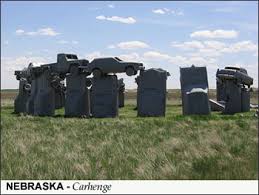Notes from our discussion, February 5
From Carol McPhee:
Darwin’s books inspired light verse as well as serious reflections on the place of humans in the universe.
In the nineteenth century, Constance Naden, a brilliant student of science who had published several articles on materialism and evolution in the Journal of Science and Knowledge, had some fun with Darwin’s ideas on the female’s part in natural selection. Her poem “Natural Selection” is in the voice of a young geologist who attempts to woo his beloved with his fossil and rock collections. He loses her to a young man who can dance and sing better than he.
http://www.bartleby.com/293/389.html
Natural Selection
by Constance C. W. Naden (1858–1889)
I HAD found out a gift for my fair,
I had found where the cave men were laid:
Skulls, femur and pelvis were there,
And spears that of silex they made.
But he ne’er could be true, she averred,
Who would dig up an ancestor’s grave—
And I loved her the more when I heard
Such foolish regard for the cave.
My shelves they are furnished with stones,
All sorted and labelled with care;
And a splendid collection of bones,
Each one of them ancient and rare;
One would think she might like to retire
To my study—she calls it a “hole”!
Not a fossil I heard her admire
But I begged it, or borrowed, or stole.
But there comes an idealess lad,
With a strut and a stare and a smirk;
And I watch, scientific, though sad,
The Law of Selection at work.
Of Science he had not a trace,
He seeks not the How and the Why,
But he sings with an amateur’s grace,
And he dances much better than I.
And we know the more dandified males
By dance and by song win their wives—
’Tis a law that with avis prevails,
And ever in Homo survives.
Shall I rage as they whirl in the valse?
Shall I sneer as they carol and coo?
Ah no! for since Chloe is false
I’m certain that Darwin is true.
The second poem, written in the late 20th century, is by Philip Appleman, also an expert on Darwin. According to the notes provided by the Poetry Foundation on line, Appleman was a “recognized expert on the life and work of Charles Darwin.” He edited a critical anthology called Darwin and wrote two books of poetry with Darwin’s name in the title. “Critics,” the article says, “have singled out Appleman’s grasp of Darwin’s provocative theories and his ability to elucidate their social implications.”
“How Evolution Came to Indiana” plays with the idea of survival of the fittest as the concept applies to Americans and their cars. It makes us think of all the ways in which consumerism asks us to reject the old, buy the new.
http://www.poetryfoundation.org/poem/175914
How Evolution Came to Indiana
by Philip Appleman (1926-)
In Indianapolis they drive
five hundred miles and end up
where they started: survival
of the fittest. In the swamps
of Auburn and Elkhart,
in the jungles of South Bend,
one-cylinder chain-driven runabouts fall
to air-cooled V-4’s, a-speed gearboxes,
16-horse flat-twin midships engines—
carcasses left behind
by monobloc motors, electric starters,
3-speed gears, six cylinders, 2-chain drive,
overhead cams, supercharged
to 88 miles an hour in second gear, the age
of Leviathan …
There is grandeur in this view of life,
as endless forms
most beautiful and wonderful
are being evolved.
And then
the drying up, the panic,
the monsters dying: Elcar, Cord,
Auburn, Duesenberg, Stutz—somewhere
out there, the chassis of Studebakers,
Marmons, Lafayettes, Bendixes, all
rusting in high-octane smog,
ashes to ashes, they
end up where they started.
Those who want to explore more of Appleman’s poems can find links if they tap the “Related Content” tab on the page where “How Evolution Came to Indiana” appears. I recommend “Darwin’s Bestiary” for more fun, but the poem I really love is “The Voyage Home,” a long meditation on Darwin’s discoveries in his voyage on the Beagle in the light of Appleman’s thoughts on World War II.

For more about Carhenge (yes, it really exists!) http://carhenge.com/
